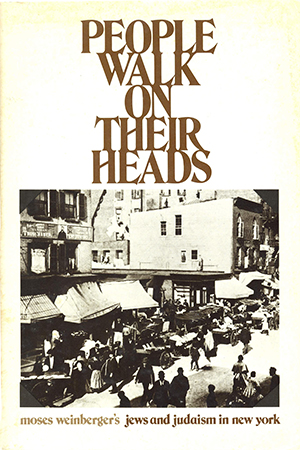
- 1981/137 pages
- Distributed for Holmes & Meier Publishers
People Walk on Their Heads:
Jews and Judaism New York
Paperback: $17.95
ISBN: 978-0-8419-0731-7
In 1880 a young Hungarian rabbi named Moses Weinberger arrived in New York City. Seven years later, he described—and deplored—a world turned upside down, where "people walk on their heads." In what has become a classic example of Jewish immigrant protest literature, Weinberger urges American Jews to defend their faith more forthrightly.
Jonathan Sarna's translation beautifully captures the essence of Weinberger's lively, often bitingly satiric prose; and his introduction provides context for the work, outlining the process that transformed immigrant Orthodoxy into Orthodoxy with an American flavor.
Jonathan Sarna's translation beautifully captures the essence of Weinberger's lively, often bitingly satiric prose; and his introduction provides context for the work, outlining the process that transformed immigrant Orthodoxy into Orthodoxy with an American flavor.







